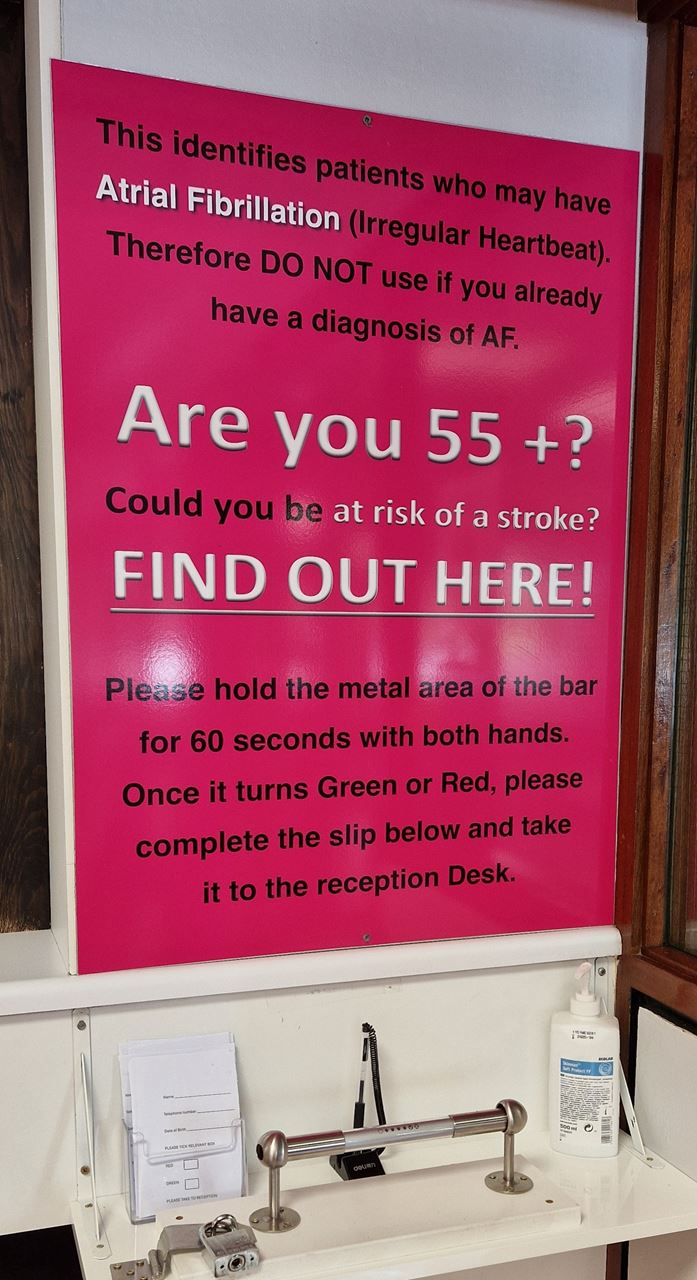Atrial Fibrillation Screening

Atrial Fibrillation Screening Available in Reception
Why is it Important to Diagnose Atrial Fibrillation?
Atrial Fibrillation often has no symptoms, but can lead to a range of complications, some of which can be serious or even life-threatening. Diagnosing and understanding the condition can help us to manage it effectively for you and reduce the risks of possible complications.
1. Stroke and Thromboembolism
One of the most significant risks of AF is the increased likelihood of stroke. The irregular heartbeats cause blood to pool in the heart's upper chambers (the atria), which can lead to the formation of blood clots. If a clot travels to the brain, it can block a blood vessel and cause a stroke. Patients with AF are up to five times more likely to suffer a stroke than those without the condition.
2. Heart Failure
AF can weaken the heart over time, leading to heart failure. This occurs when the heart cannot pump enough blood to meet the body's needs, resulting in symptoms such as fatigue, shortness of breath, and swelling in the legs and feet. The risk of heart failure is particularly high in individuals who have had AF for a long time or who also have other underlying heart conditions.
3. Affecting Your Quality of Life
AF can significantly impact your quality of life. Symptoms such as palpitations, fatigue, and shortness of breath can interfere with daily activities.
Managing Your Atrial Fibrillation
While AF poses some possible risks, many of these can be managed or the risks reduced with medical treatment and lifestyle adjustments:
- Medication: Anticoagulants (blood thinners) can reduce the risk of stroke. Other medications can help control heart rate and rhythm.
- Lifestyle Changes: Maintaining a healthy diet, engaging in regular physical activity, and avoiding excessive alcohol and caffeine intake can help manage AFib.
- Regular Monitoring: Regular annual check-ups are essential for monitoring your atrial fibrillation & adjusting treatment as necessary.
More Information about Atrial Fibrillation can be found on the British Heart Foundation Website using this link: https://www.bhf.org.uk/informationsupport/conditions/atrial-fibrillation
Page created: 19 May 2021